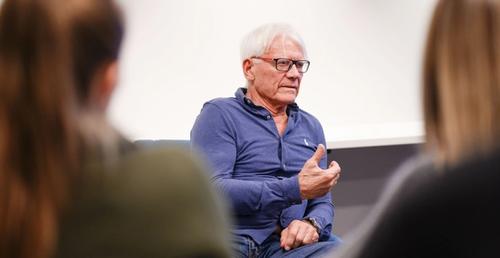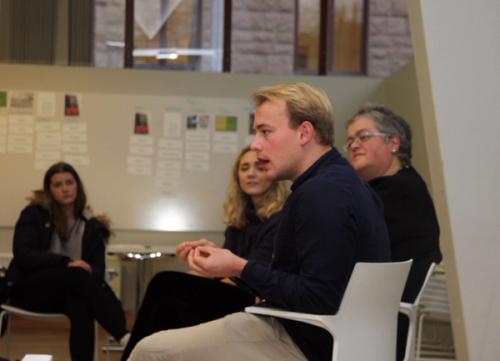Background and purpose
"My Story - Personal testimonies from and about 22 July" is an educational programme and documentary project at The 22 July Centre. Several survivors and relatives have told their stories in the media and in biographies. Others have expressed a desire to share their experiences without finding any opportunity to do so. This project highlights the stories of people who experienced 22 July 2011 up close in different ways, and places them in a broader context.
Since 2017, the 22 July Centre has being granted State Budget funding to develop a new teaching program centred on witness testimonies. Since the start of the spring semester in 2018, we have offered every Friday a program for school classes titled "My Story - Personal testimonies from and about 22 July". At the same time, we gradually started collecting witness testimonies in the form of video recordings, texts and other contributions. Going forward, we hope to gather a broader range of personal testimonies, which can include both existing materials and new video recordings, audio recordings and images.
Through the collection of different types of witness testimonies, we hope in the long term to be able to showcase the diversity of stories about the events that unfolded on 22 July as well as interpretations of the impact of terrorism.



